
Premier scientific symposium showcases medical research and development
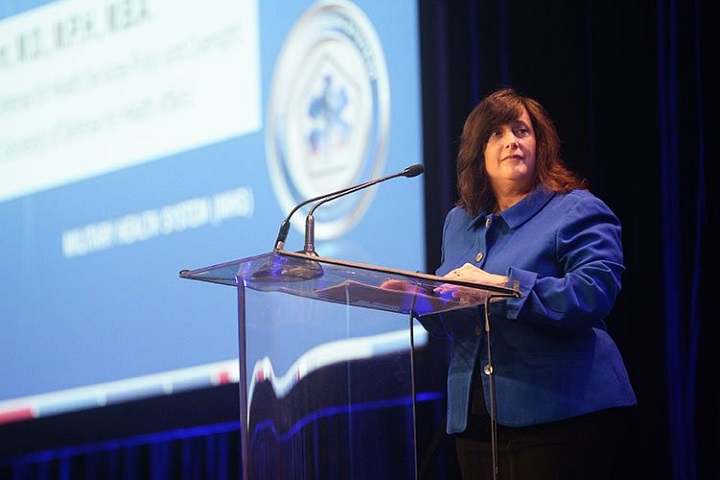
Dr. Terry Adirim, deputy assistant secretary of defense for Health Services Policy and Oversight, speaks at a plenary session at the 2018 Military Health System Research Symposium, Aug. 20, at the Gaylord Palms Resort and Convention Center in Kissimmee, Florida. The theme of this year’s meeting is “Medical Innovation for Warfighter Readiness: The Future Starts Now.” (MHSRS photo)
KISSIMMEE, Fla. — Sharing knowledge gained from military-unique medical research and development is the focus of the annual Military Health System Research Symposium, Aug. 20-23 at the Gaylord Palms Resort and Convention Center in Kissimmee, Florida. The theme of this year’s meeting is “Medical Innovation for Warfighter Readiness: The Future Starts Now.”
“MHSRS is the premier showcase for our research community,” said Dr. Terry Rauch, acting deputy assistant secretary of defense for Health Readiness Policy and Oversight, and one of the speakers during the plenary session.
“Attendees will be able to meet with colleagues from around the world in industry, academia, and across governments while learning about all of the new and exciting advancements in military medical research," Rauch said.
Dr. Kelley Brix, branch chief of interagency research coordination at the DHA, moderated the plenary session. She noted a record number – more than 3,000 – are attending this year’s symposium, including military providers with deployment experience, research and academic scientists, and industry and international partners.
“It’s exciting to see how this conference continues to grow each year,” said Vice Adm. Raquel Bono, director of the Defense Health Agency. The other plenary speakers were Dr. Terry Adirim, deputy assistant secretary of defense for Health Services Policy and Oversight; and Army Maj. Gen. Barbara Holcomb, commanding general of the U.S. Army Medical Research and Materiel Command and Fort Detrick, Maryland, and chief of the Army Nurse Corps.
The plenary speakers emphasized that along with gaining knowledge during the symposium, attendees should seek to create research partnerships to support Defense Secretary James Mattis’ call to build and maintain a more lethal fighting force. The symposium “is the one time all who are involved in this important work can be at the same place at the same time,” Holcomb said.
Holcomb noted that Army researchers developed a blood test to evaluate mild traumatic brain injury, the first of its kind to be approved by the Food and Drug Administration. She said researchers should strive to “fail fast” so their attention and focus can pivot to scientific ideas that will prove to have more value.
“There’s a strong mandate for speed to leverage science into technology and outpace our rivals,” Rauch said, adding that the DoD’s working relationship with FDA is perhaps stronger today than it’s ever been in his 40-year career.
Other R&D priorities, Rauch said, include artificial intelligence, disease prevention, and efficient and effective health care for veterans.
Adirim noted that in July, the FDA announced authorization for emergency use of freeze-dried plasma. “This is science in action saving lives on the battlefield,” Adirim said. She added that by September 2022, the DHA will stand up two sub agencies: one for R&D, and the other for public health.
Topics that will be covered during the four-day MHSRS include combat casualty care, military operational medicine, clinical and rehabilitative medicine, medical simulation and information sciences, military infectious diseases, surgical care, telehealth, pain management, and psychological health and resilience.
MHSRS is the only military or civilian meeting that focuses specifically on the unique medical needs of warfighters, providing a collaborative setting for the exchange of information. Additional information about MHSRS is available here.
Awards honor distinguished service, individual and team research
Article
8/21/2018
Three people, four teams recognized at symposium
Researchers will present findings at Military Health System Research Symposium
Article
8/15/2018
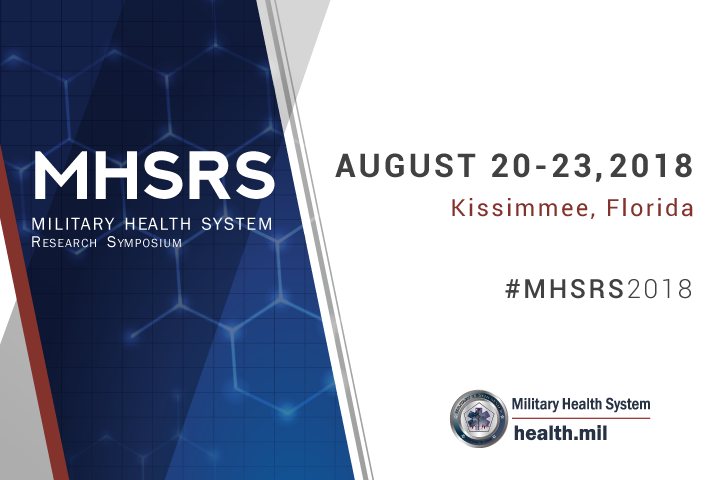
As the DoD’s premier scientific meeting, MHSRS helps to facilitate the exchange of information between almost 3,000 attendees
Medical research and development take center stage at symposium
Article
8/15/2018

Premier scientific meeting to draw 3,000 attendees
From an award ceremony to panel talks, senior leaders will have presence at HIMSS
Article
3/8/2018
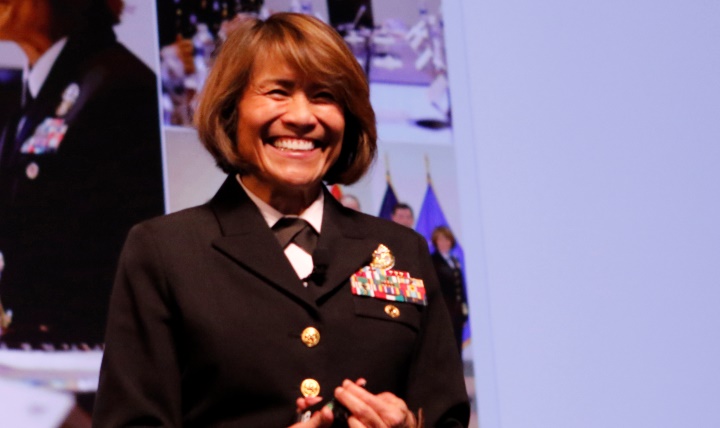
Federal health, IT experts come together for discussion on hot topics
2017 Year in Review: A look at inspiring individuals who help shape the MHS
Article
12/20/2017
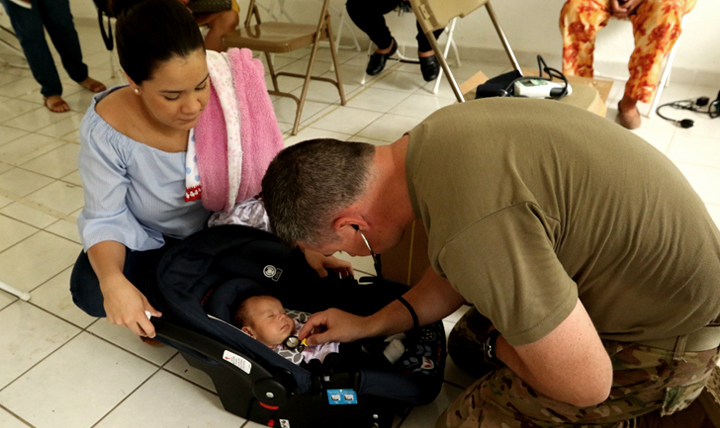
MHS highlights the contributions of veterans, advocates, providers
Centers of Excellence align under Defense Health Agency
Article
11/1/2017
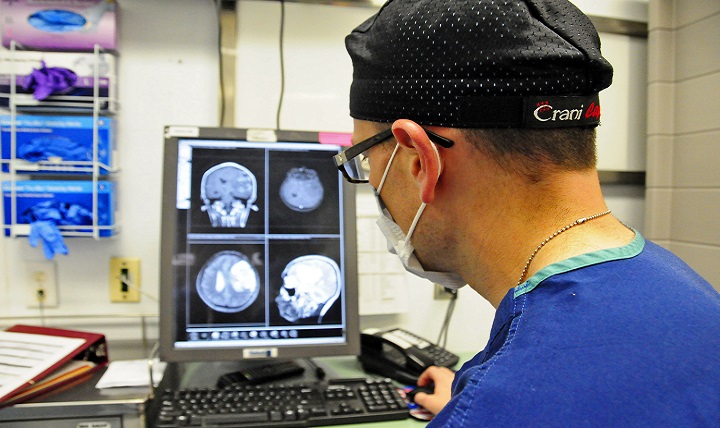
The Defense Centers of Excellence for Psychological Health and Traumatic Brain Injury (DCoE) began realignment under the Defense Health Agency Oct. 1 as part of the ongoing Military Health System transformation
DHA symposium brings together minds to get the most out of research dollars
Article
10/17/2017
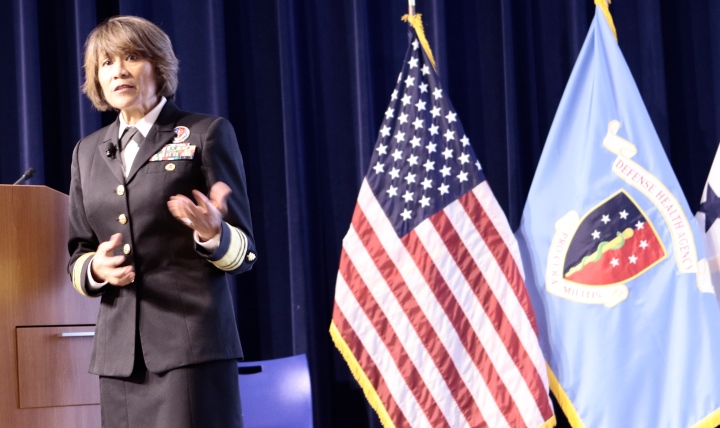
A recent symposium sponsored by the Defense Health Agency brought together military, federal government, academia, and private industry to talk about how best to get the most out of tax dollars while helping patients
Army, civilian experts speak on bridging from research to advanced development and fielding
Article
9/8/2017
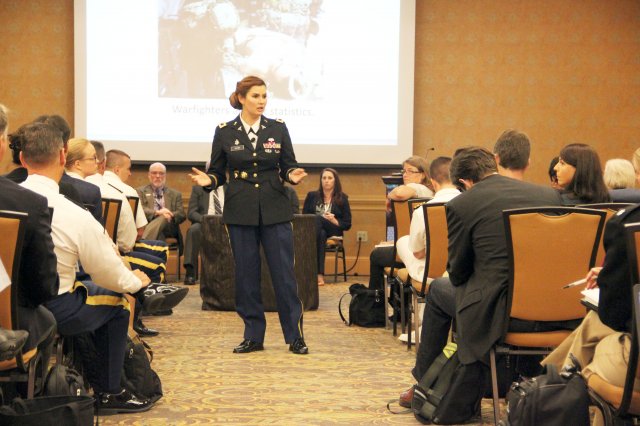
Experts from the U.S. Army Medical Research and Materiel Command joined counterparts in military, government, industry and academia in a panel session at the Military Health System Research Symposium
Research symposium provided forum for collaboration
Article
9/1/2017
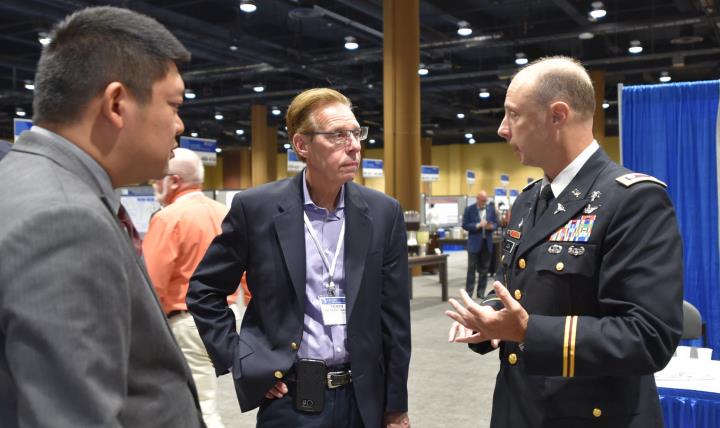
The Military Health System Research Symposium wrapped up in Kissimmee, Florida, after a nearly week-long chance for providers and scientists to collaborate on military medicine.
Studies seek to improve everyday life after injury, amputation
Article
8/31/2017
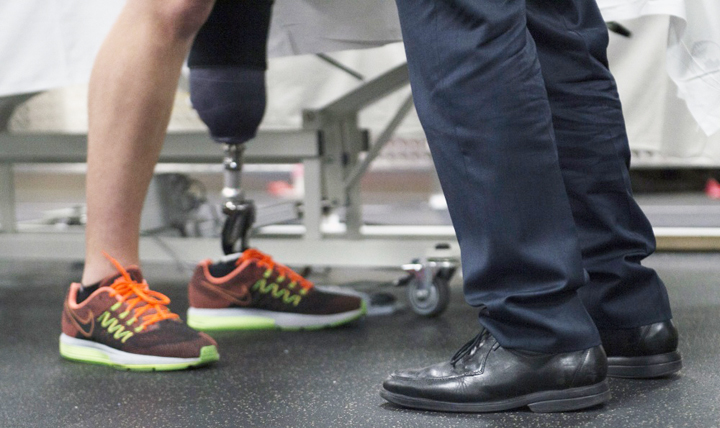
Aspects from daily life, whether its tobacco use or hand functions, can be challenged in ways unknown before a significant injury; Experts share their research on musculoskeletal injuries during MHSRS in Kissimmee, Florida
NHRC shares research that supports warfighter readiness at MHSRS
Article
8/31/2017
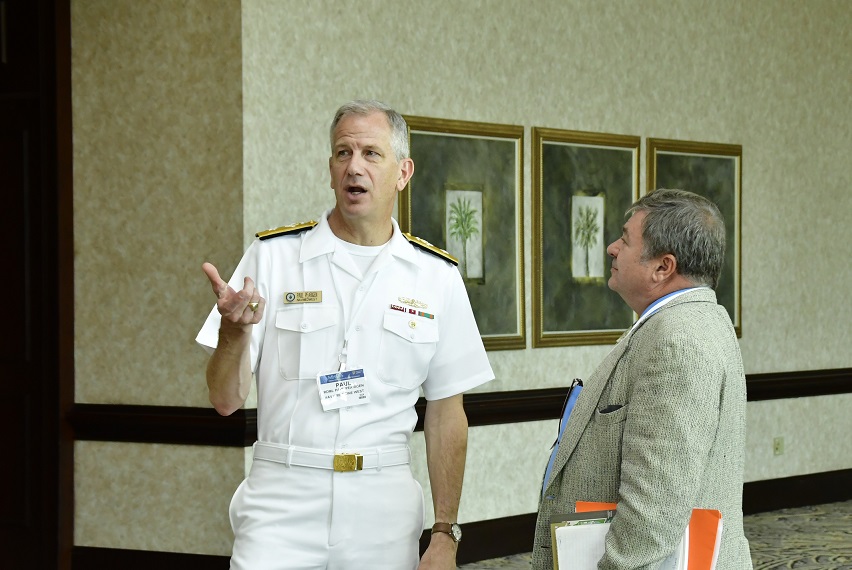
Scientists from the Naval Health Research Center attended the 2017 Military Health System Research Symposium, Aug. 27-30, to share their latest research that supports the readiness and health of U.S. warfighters.
NHRC research protects U.S. military recruits from respiratory illness
Article
8/31/2017
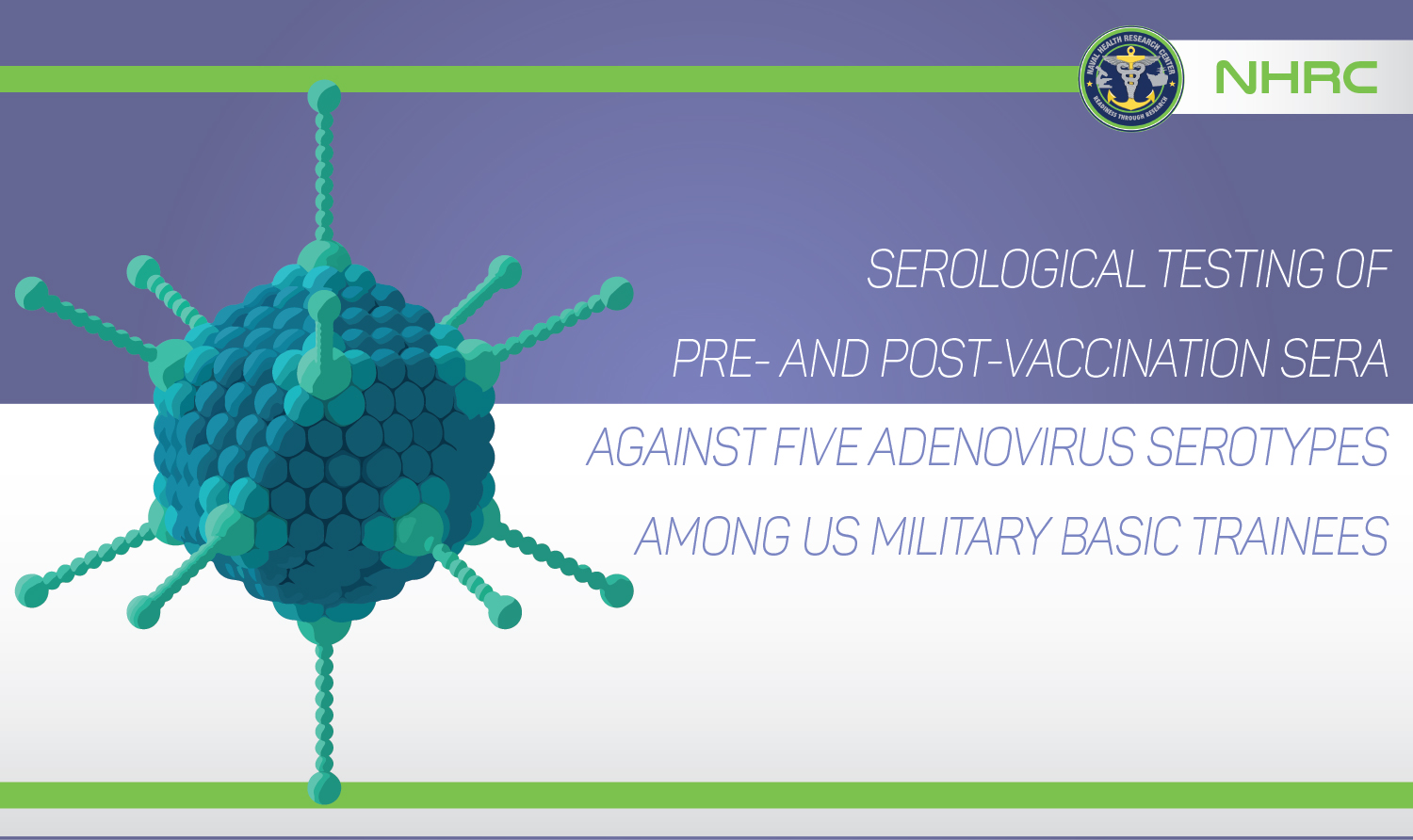
Researchers from the Naval Health Research Center discussed ongoing surveillance for adenovirus, a contagious pathogen that causes respiratory illness, among U.S. military recruits during basic training at the Military Health System Research Symposium, Aug. 27.
The development of a nanofibrous scaffold for the recruitment of fibroblast during wound healing
Article
8/30/2017
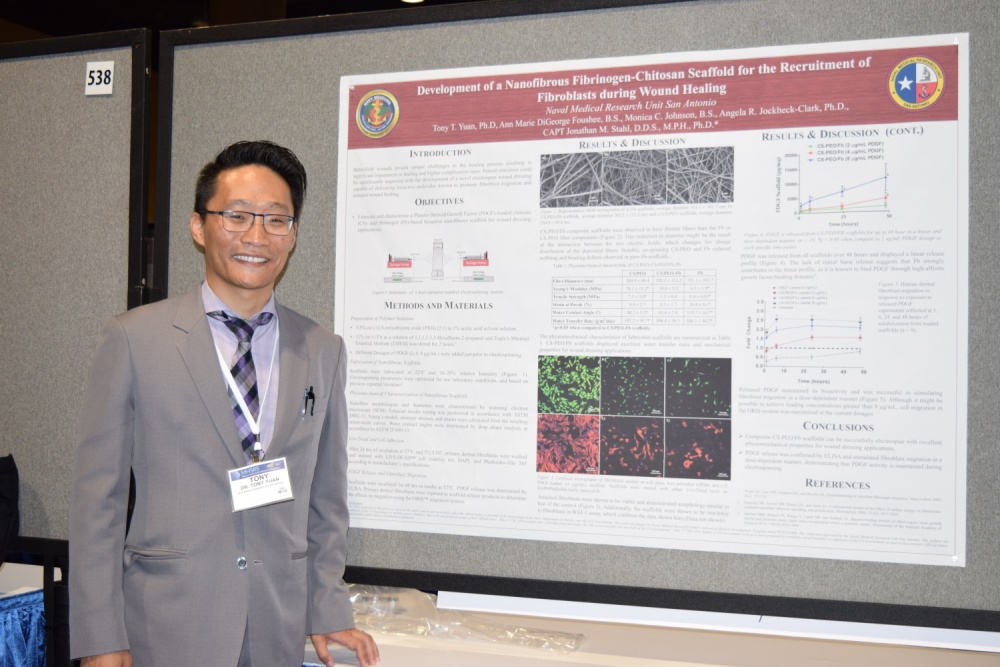
A researcher from the Naval Medical Research Unit – San Antonio shared findings on the fabrication and characterization of a novel nanofibrous scaffold that could potentially improve wound healing by enhancing wound closure, promoting hemostasis, and acting as a temporary physical barrier against debris and microbial pathogens during the Military ...
Experts talk knowledge translation benefits for Military Health System
Article
8/30/2017
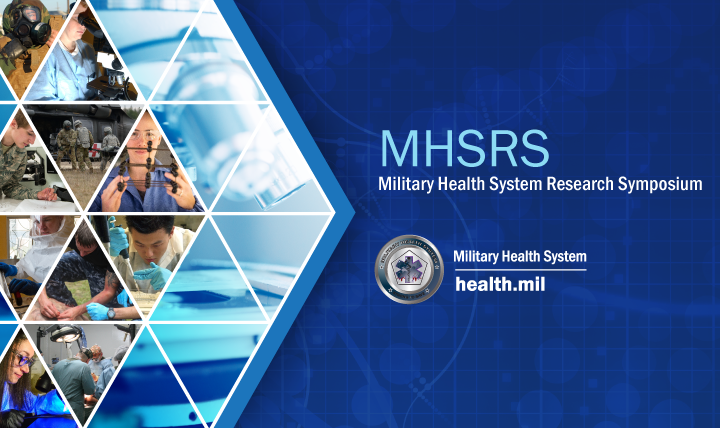
Dr. Richard Stoltz, Defense Centers of Excellence for Psychological Health and Traumatic Brain Injury (DCoE) acting director, introduced the knowledge translation process and how using a systematic approach and best practices can impact military psychological health challenges.
Knowledge translation: What is it, how will it help?
Article
8/29/2017

Knowledge translation is a process to take medical research findings and put them into evidenced-based treatments in a more timely and useful way





















.png)









No hay comentarios:
Publicar un comentario